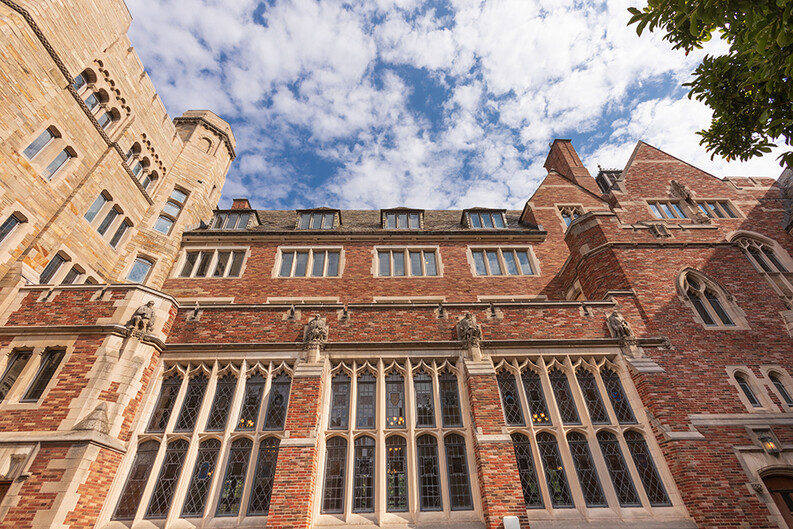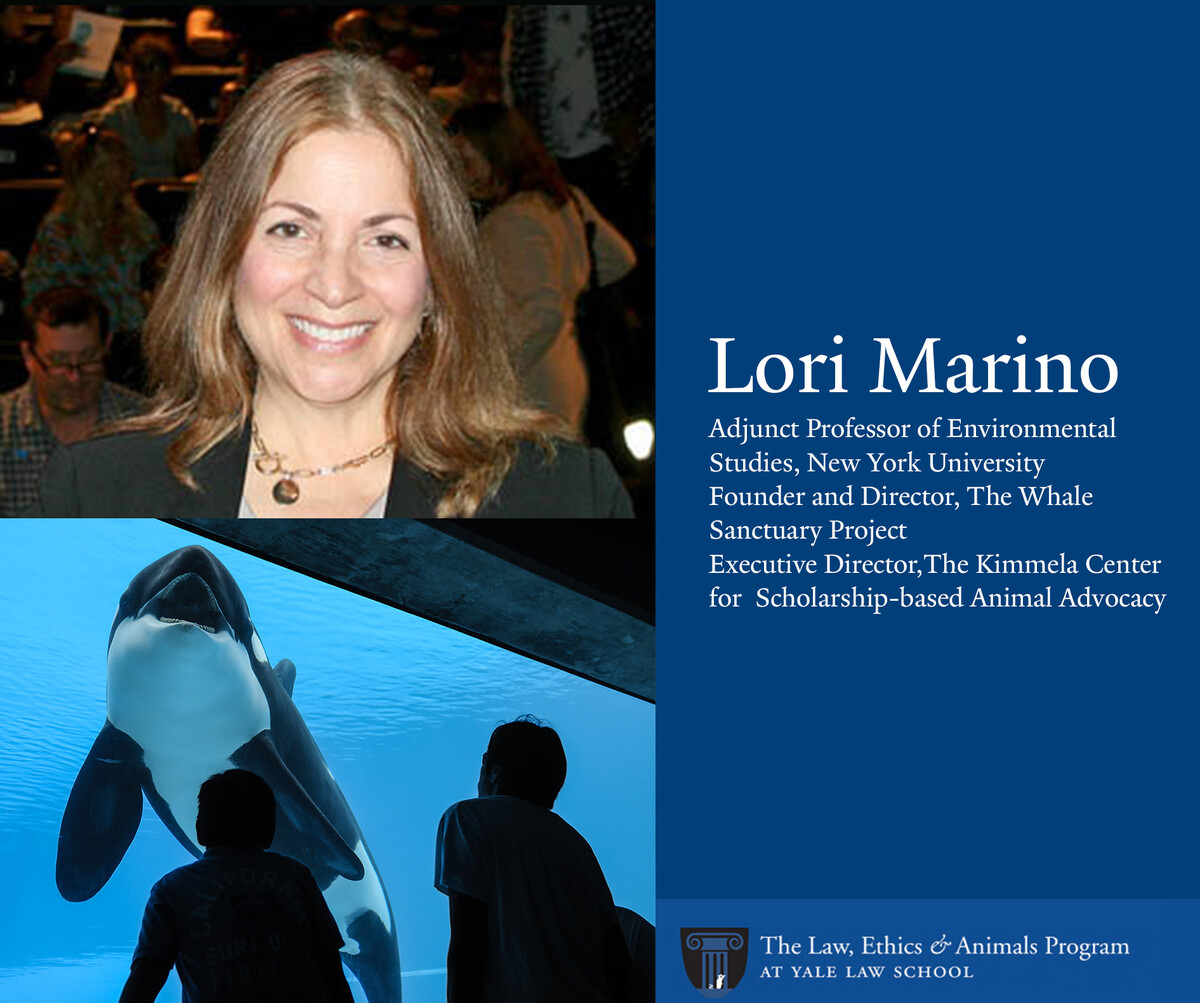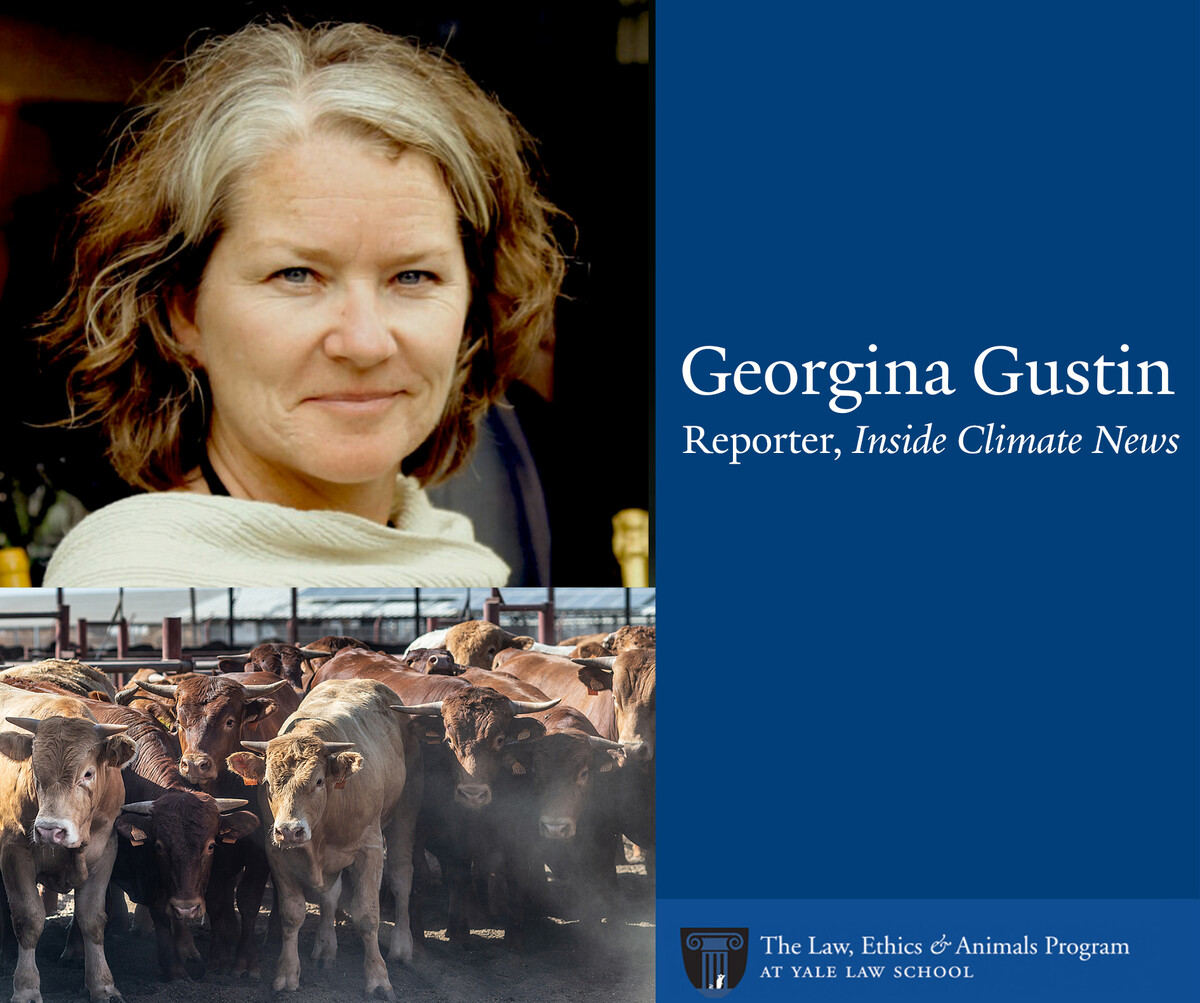LEAP Announces Spring Events for 2022-23 Speaker Series

The Law, Ethics & Animals Program4 (LEAP) at Yale Law School has announced the spring events for its 2022-23 speaker series. The first event of 2023 will be on Feb. 14 with animal behavior and intelligence expert Lori Marino, who will discuss the foundational role of science in legal efforts to protect nonhuman animals, including recent legislation in the U.S. and Canada. In March, Inside Climate News reporter Georgina Gustin will discuss animal agriculture’s lobbying efforts and legislative pushback aimed at misinforming the public about its role in contributing to climate change.
Events will take place in person and lunch will be provided. Register for each event through its online form.

The Role of Science in Animal Protection Legislation with Lori Marino
Feb. 14 from 12:15 to 1:15 p.m. ET
Sterling Law Building, Room 120
Lori Marino event registration form5
Scientific discoveries in recent decades have shown the lives of nonhuman animals to be far more complex than humans historically believed. Yet legal protections for many nonhumans — from cetaceans to elephants to farmed animals — have not evolved alongside this expanded knowledge. In this talk, moderated by LEAP Postgraduate Fellow Laurie Sellars, neuroscientist Lori Marino6 will discuss the foundational role of the science of other animals in legal efforts to protect them, including recent legislation in the U.S. and Canada. She will also present information about a new Animal Law and Science Project at George Washington University, the first academic program to bring science and animal law together in a formal way.
Marino, an expert in animal behavior and intelligence, is an Adjunct Professor of Environmental Studies at New York University. She is the founder and President of the Whale Sanctuary Project7 and Executive Director of The Kimmela Center for Scholarship-based Animal Advocacy8. She was on the faculty at Emory University for 20 years. Her scientific work focuses on the evolution of the brain and intelligence in dolphins and whales (as well as primates and farmed animals), and on the effects of captivity on wildlife. She has published over 140 peer-reviewed scientific papers, book chapters, and magazine articles. In 2001 she co-authored a groundbreaking study9 demonstrating the first conclusive evidence for mirror self-recognition in dolphins.
Marino spends a lot of her time working at the intersection of science and animal law and policy. She has been an expert witness and advisor for several legal efforts for animal rights and protection, including the Nonhuman Rights Project and the Canadian Senate Bill S203, a bill that passed in 2019 banning the keeping and breeding of dolphins and whales for entertainment in Canada. She has appeared in several films and television programs, including Blackfish, the 2013 documentary about orca captivity; Long Gone Wild, the 2019 documentary on marine mammal captivity; and the 2021 film Seaspiracy.
This event is co-sponsored with the Yale Animal Law Society and the Yale Sustainable Food Program.

Animal Agriculture's Climate Lobbying and Misinformation Strategies with Georgina Gustin
March 30 from 12:15 to 1:15 p.m. ET
Sterling Law Building, Room 122
Georgina Gustin event registration form10
In the past five years, a slew of academic research and several major international reports, including from the United Nations Intergovernmental Panel on Climate Change11, have urged people, especially in developed countries, to lower their dairy and meat consumption because of the greenhouse gas intensity of the livestock industry. That and the resulting media attention have put these industries and their lobbying groups on defensive footing. According to researchers, the industries have adopted talking points and promoted research that downplays the energy intensity of the industries, and in some cases have pressured lawmakers to tweak legislation or rules that would have urged more plant-focused eating. In this talk, moderated by LEAP Executive Director Viveca Morris12, Inside Climate News reporter Georgina Gustin13 will discuss the recent history of industry and legislative pushback and how these defensive efforts may confuse the public about the impacts of livestock agriculture.
Gustin covers the intersection of agriculture, food systems and climate change. She has twice been named the North American Agricultural Journalists Association Glenn Cunningham Agricultural Journalist of the Year and has received the John B. Oakes Award for Distinguished Environmental Journalism, among other awards. She has worked as a reporter for The Day in New London, Connecticut, the St. Louis Post-Dispatch, and CQ Roll Call. Her stories have appeared in The New York Times, The Washington Post and National Geographic’s The Plate, among others. She is a graduate of the Columbia University Graduate School of Journalism and the University of Colorado at Boulder.
This event is co-sponsored with the Poynter Fellowship in Journalism, the Yale Animal Law Society, the Yale Environmental Law Association, and the Yale Sustainable Food Program.


